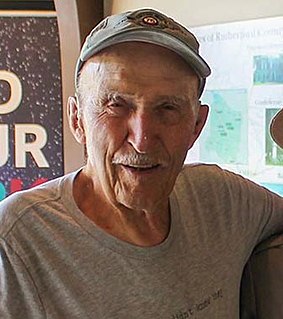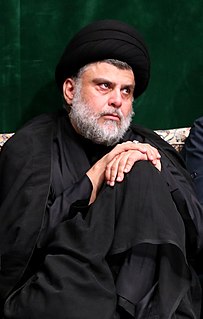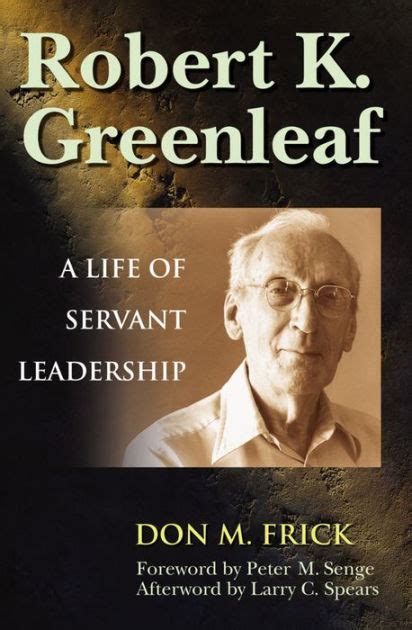A Quote by Ed Bearss
The best leaders collect information widely, listen to everybody, and then decide by themselves.
Quote Topics
Related Quotes
What makes a good follower? The single most important characteristic may well be a willingness to tell the truth. In a world of growing complexity leaders are increasingly dependent on their subordinates for good information, whether the leaders want to hear it or not. Followers who tell the truth and leaders who listen to it are an unbeatable combination.
The best leaders are clear. They continually light the way, and in the process, let each person know that what they do makes a difference. The best test as a leader is: Do those served grow as persons; do they become healthier, wiser, freer, more autonomous, more likely themselves to become leaders?
True listening is never self-effacement. We bring the whole self to the process, rather than denying self. When we truly listen, we aren't just waiting for someone else to decide something so we can get on with things, or so we don't have to decide for ourselves. We aren't giving away our own powers to be seen and heard. When we listen, first we listen to the parts of ourselves that are curious, in avoidance, afraid, angry, or proud. Then we can take a breath and sink, allowing those parts some space alongside the spaciousness of not knowing.
Well, the first thing I do is I try to listen to whatever rapping is already on the track. I listen for cadence and melody to see how the track's already been written, and to make sure that whatever flow or flows I decide to run with, or patterns or melodies that I decide to put into the song, that they're not already in there. Then I try to see if there's a different part of the subject matter that I can talk about.
I do have a collection of mid-century, small-press science fiction and fantasy hardcovers that is my most focused and dedicated collection. Everything else I tend more to acquire or amass than collect. I have vinyl records I listen to all the time when I work. But I don’t collect records. I just buy records where the price seems right and it’s music I actually listen to.
If you share information widely, but you present that information in ways that fits your own view, you're actually still misrepresenting. So instead what you should do is figure out ways to build systems that allow people to experience and classify their information in ways that are meaningful for them.
I'd be surprised if non-fiction writers hate to be interviewed. We all hate them, because there's really nothing to say except "Read the book." Right? At least with non-fiction, you can kind of convey some information, and people can decide for themselves whether they want more of that kind of information. But with a novel, what am I going to do?








































